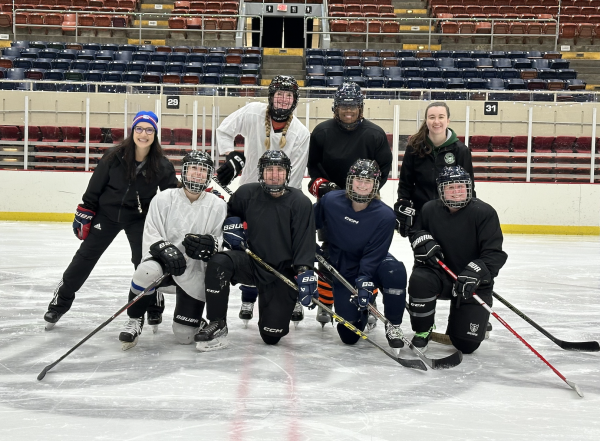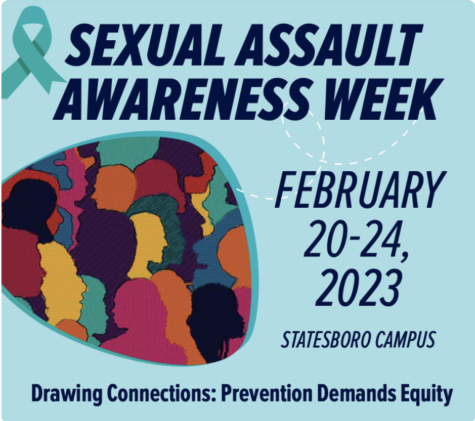GS students spend little time reading textbooks, other print media, prefer social, online media, survey says

April 29, 2019
For many college students, not a day goes by where they don’t read something, whether a succinct post on social media, a bulleted list in a textbook or a lengthy novel about action and adventure.
Reading helps us learn new information, expand our vocabularies and improve how we write and communicate.
Some college students prefer reading books, newspapers, and magazines, but most would rather skim the feeds and timelines of Facebook, Instagram and Twitter, according to our recent survey.
Anyone, professional or amateur, can publish anything, verified or not, online, and thus, much of the information found there is unreliable and factually suspect.
This past week, The George-Anne Reflector Magazine surveyed 42 Georgia Southern University students about their reading habits to find out how much social, online and print media they consume.
The results are revealing.
In the past 30 days:
- 67 percent of students said they read posts on social media “extremely frequently.”
- 19 percent said “very frequently.”
- 7 percent said “moderately frequently.”
- 7 percent said “slightly.”
- 0 percent of students said “not at all frequently.”
Regarding online reading material, such as online newspaper and magazine articles, blog posts, and literary journals, the results were a bit more varied:
- 10 percent of students said they read online reading material “extremely frequently.”
- 31 percent said “very frequently.”
- 24 percent said “moderately frequently.”
- 21 percent said “slightly frequently.”
- 14 percent said “not at all frequently.”
Considering the financial state of the print industry and millennials’ preference for technology, the results for students’ consumption of print reading material were as expected:
- 2 percent of students said they read print reading material “extremely frequently.”
- 7 percent of students said “very frequently.”
- 31 percent of students said “moderately frequently.”
- 26 percent of students said “slightly frequently.”
- 33 percent of students said “not at all frequently.”
Students were also asked how frequently they read their textbooks for class:
- 5 percent of students said they read their print or online textbooks “extremely frequently.”
- 14 percent said “very frequently.”
- 17 percent said “moderately frequently.”
- 36 percent said “slightly frequently.”
- 29 percent said “not at all frequently.”
The survey also posed the following short-answer question: “In general, what do you enjoy reading about the most?”
Below is a chronological list of the responses.
Note that some of the respondents seem to have misread the question as, “What do you enjoy about reading the most?”
- Autobiographies, fiction
- Learning new, unique information
- History
- Politics
- Being able to learn something new, or imagine something new
- Dystopian novels
- Fiction stories, novels
- Fictional stories, or stories with action
- Sports and entertainment
- The process of acquiring new information
- Sports
- Sports articles
- New technologies and sports
- Hard news that is both local and national
- I enjoy reading about fiction most often
- Finances, poetry, self-help
- News, sports
- I like to learn something new every day
- A refreshing way of reading instead of staring at the screen
- It makes me think about things. Instead of being told what to think, I can come to my own conclusions
- I love it because it develops the mind. It broadens my mind on many topics I do not think much about
- I love reading about business and money
- Music artists
- Unlike movies and film, your mind is in control of all the minute details
- Nothing
- Educating myself on a wide variety of topics
- I enjoy reading about issues that are occurring in today’s society. In our generation, we typically don’t watch the news; so, reading about it is the only way we probably would be aware of those issues
- Music, drama involving celebrities, sports
- Mysteries, romantic novels
- The future and what people are doing to make it better
- Not very much unless I’m interested in the content
- Sports
- Popular culture, world news, and news regarding Statesboro, Georgia / Georgia Southern University
- The story
- Murder, romance, pretty much everything
- I enjoy reading fiction books. Dramas and all that
- Gossip blogs
- I enjoy reading between the lines
- Facebook posts
- I just enjoy being distracted by a story or article. I also find that it sparks my creativity
- How fun it can be to escape into my own mind. Also, it’s fun to learn things and see other people’s perspectives
- N/A
In addition, 88 percent of the students said they’re most likely to read social media posts, as opposed to online news articles and blog posts.
Regarding print reading material, 67 percent of students said they’re most likely to read books, as opposed to newspapers and magazines.
The last survey question asked students why they read:
- 19 percent said “to stay informed / updated”
- 62 percent said “to be entertained”
- 12 percent said “to learn”
In conclusion, this survey indicates that GS students are consuming a heaping portion of social and online media, while spending very little time reading print books, newspapers, magazines and textbooks.
This isn’t altogether surprising, of course. Young, Generation Z college students live in a digital-dominated world, an era in which all of the information they could ever want is just a click or finger tap away.
But aside from the general inaccuracy and unreliability of social and online media, just what are the consequences of too much screen time?
According to recent neuroimaging research:
- Damage to the brain’s frontal lobe, which governs planning, prioritizing, organizing, and impulse control
- Damage to the brain’s striatum, which helps suppress socially unacceptable impulses
- Damage to the brain’s insula, which helps aids in the development of empathy and compassion
- Damage to the brain’s white matter integrity, which causes slowing, short-circuiting and misfiring of brain signals
- Less efficient information processing, abnormal brain activity and poor task performance
- Increased sensitivity to rewards and decreased sensitivity to loss
- Reduced dopamine receptors and transporters
In short, it wouldn’t hurt to give the eyes a rest from the blue light for a while and read a book, magazine or newspaper in a warmly lit area.
The George-Anne Reflector Magazine’s survey covered only a small portion of Georgia Southern’s student population, so we want to know, what are your online, social and print media reading habits like?
Tweet us @ReflectorGSU and let us know!














